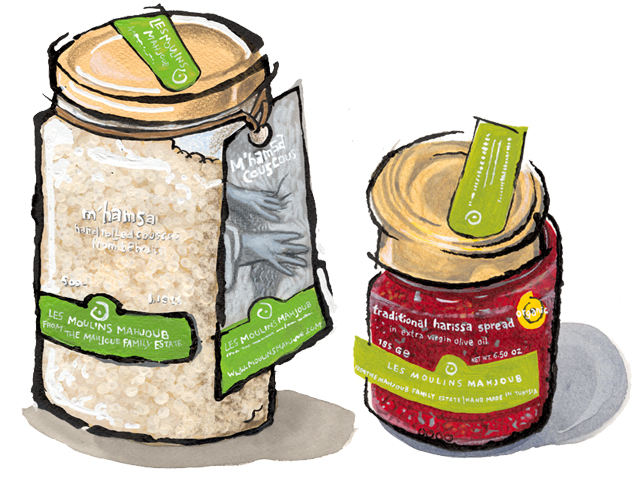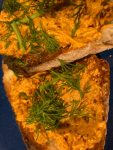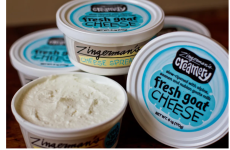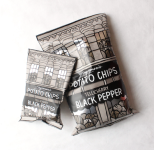Organic Harissa and Handmade Couscous from Tunisia

I’ve written so much about these two of late that I’m wary of overdoing it. I’ve literally eaten couscous or harissa almost every week for the last two years, and I’ve yet to tire of either. To the contrary, the more I eat them the more I want to eat them. Both are easy to use and easy to like. They’re great together—a bowl of hot couscous and a spoonful of harissa to mix into it is fast food at its best.
Both the couscous and the harissa come to us from the Mahjoub family’s farm, about an hour outside of Tunis, in the small town of Tebourba. The family itself is fantastic. They are truly passionate about all things Tunisian, intent on spreading the word about their country’s special history. All the family’s products are organic.
They grow the wheat for the couscous on the farm, mill it, make the resulting semolina flour into couscous, rolling each small round by hand, then dry it all slowly and naturally in the sun. M’hamsa, actually means “by hand.” When you cook it your whole kitchen will smell like wheat. It’s also incredibly easy to do, so easy that I was skeptical when we first started stocking it four years ago. But sure enough, all you do is use 1½ parts water for 1 part couscous. Salt the water lightly, bring it to a boil, the add the couscous. Stir, cover, turn off the heat altogether, and just let the couscous steam in the pot for about 12 minutes. It should come out light, almost fluffy once you move it around a bit with a fork. Couscous is, of course, basically a form of Berber pasta. It fits well with their nomadic lifestyle, allowing them to transport and eat wheat regularly throughout the year. If you love pasta (as I do) you’ll pretty likely love the couscous. It can be a main course, a side dish, or a salad. Top it with anything from a simple tomato sauce to meat, fish, and vegetables. You can add it as well to soups or stews. Cooked with milk, cinnamon and a bit of sugar you have a porridge to take the place of rice pudding.
The harissa is excellent on pretty much anything you can imagine. It’s made from three different chiles, tomatoes, and garlic—all organic, all sun-dried—ground to a paste and then blended with the Mahjoub’s organic extra virgin olive oil, a touch of caraway, some sea salt. I like it a lot on eggs, on sandwiches, added to tomato sauces, mixed with mayonnaise for a dipping sauce, mixed with yogurt and then tossed with chickpeas and baked. It’s great in cream cheese—you can serve it that way for a snack, hors d’oeuvres, or on a toasted bagel. Toss it in really good, just-cooked pasta (couscous or one of our other artisan offerings), serve it next to broiled fish, roasted meat of any sort, or just add a spoonful to a vegetable soup. All, truly, are terrific.
If opposites often attract, it would make sense that the harissa would be a natural partner for the couscous. The latter is mellow, nutty, wheaty, a beautiful golden color, with a soft flavor that can support most any sauce. The harissa by contrast, is forward, fast paced, spicy, wildly intriguing, a deep, bold red and intense flavor that will never, ever go unnoticed. The harissa is so exceptionally good that I’d put it on pretty much any list of “bests” you asked me to put together. If you know anyone who loves spicy food, stick a jar of this in their stocking. And if you know anyone who likes to cook, give them a jar of the couscous. If you really like them, give them one of each. They will, I promise, thank you for many years to come. And for what it’s worth, that promise is not speculation—I’ve given both as gifts dozens of times and I think that everyone I’ve given them too has quickly confessed to being as addicted to the two as I am.
P.S. if you’re wary of the spiciness of the harissa, take home a jar of the Mahjoub’s sun-dried tomato paste instead. Basically it inverts the ratio of chiles and tomatoes. With the sun-dried tomato taking top billing, the heat is very secondary. You can use it in all the same ways and it is always super fantastically good.
P.P.S. the Mahjoubs also make spectacular sun-dried (truly dried in the sun which almost no one else does any more) tomatoes, incredible Tunisian tomato sauces, orange marmalade, preserved lemons (aged six months in salt brine barrels out in the sun) and amazing naturally cured (for over a year) olives. All are outstanding.
This post is part of a series of Ari’s Best Foods of 2011.




Zingerman’s Art for Sale